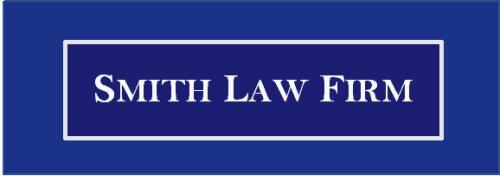Best Land Use & Zoning Lawyers in Toronto
Share your needs with us, get contacted by law firms.
Free. Takes 2 min.
Free Guide to Hiring a Real Estate Lawyer
List of the best lawyers in Toronto, Canada
About Land Use & Zoning Law in Toronto, Canada
Land use and zoning in Toronto, Canada refers to the regulations and restrictions that govern how properties can be used and developed. These laws help ensure that land is used in a way that is compatible with its surrounding environment and the needs of the community. The City of Toronto has specific by-laws and regulations in place to manage land use and zoning within its boundaries.
Why You May Need a Lawyer
There are several situations where seeking legal help in land use and zoning matters may be necessary:
- If you are planning to develop or redevelop a property and need assistance navigating the complex regulations and permits required.
- If you are facing legal disputes, such as disagreements with neighbors, local authorities, or developers over land use or zoning issues.
- If you have received a notice of violation or stop-work order from the City of Toronto and need guidance on how to address the situation.
- If you are interested in rezoning or obtaining variances for your property and require legal representation to present your case to the authorities.
Local Laws Overview
In Toronto, there are various local laws that are particularly relevant to land use and zoning:
- The City of Toronto Zoning By-law regulates the use of land, specifying the permitted uses for different areas.
- The Official Plan sets out the vision for the City's future development, including land use policies.
- The Committee of Adjustment handles minor variances and consent applications.
- The Ontario Municipal Board (OMB) adjudicates appeals related to land use and zoning decisions made by the City of Toronto.
- The Toronto Local Appeal Body (TLAB) is responsible for hearing appeals related to minor variances and certain types of consent applications.
Frequently Asked Questions
1. Can I change the zoning on my property?
Changing the zoning on your property is possible, but it typically requires going through a rezoning process. This involves submitting an application to the City of Toronto and going through a public consultation process to obtain approval from the City Council. It can be complex, and consulting a land use and zoning lawyer is advisable.
2. What is a minor variance?
A minor variance is a request to deviate slightly from specific provisions of the Zoning By-law. The Committee of Adjustment assesses whether the variance meets specific criteria, such as maintaining the general intent of the by-law, and decides whether to grant approval.
3. Can I run a business from my residential property?
In Toronto, running a business from a residential property is subject to certain conditions. It generally depends on the zoning designation of the property and the nature of the business. Some types of businesses may be permitted, while others may require rezoning or specific permits.
4. What is a zoning by-law amendment?
A zoning by-law amendment is a change made to the existing zoning by-law that applies to a specific area or property. If you want to propose a development that doesn't conform to the current zoning restrictions, you may need to apply for a zoning by-law amendment.
5. What can I do if my neighbor's land use violates zoning regulations?
If you believe your neighbor is violating zoning regulations, you can report the issue to the City of Toronto's Municipal Licensing & Standards (MLS) division. They can investigate the complaint and take appropriate action. However, seeking legal advice is recommended, as it can help you understand and protect your rights in such situations.
Additional Resources
Here are some resources that can provide further information and assistance on land use and zoning matters in Toronto, Canada:
- The City of Toronto - Zoning By-law: https://www.toronto.ca/city-government/planning-development/official-plan-guidelines/zoning-bylaw/
- The City of Toronto - Official Plan: https://www.toronto.ca/city-government/planning-development/planning-studies-initiatives/overview-of-torontos-official-plan/
- The Committee of Adjustment: https://www.toronto.ca/city-government/planning-development/committee-of-adjustment/
- The Ontario Municipal Board: http://elto.gov.on.ca/omb/
- The Toronto Local Appeal Body: https://www.toronto.ca/city-government/boards-committees-tribunals/other-boards-committees-tribunals/toronto-local-appeal-body/
Next Steps
If you require legal assistance in land use and zoning matters in Toronto, Canada, consider taking the following steps:
- Gather all relevant documents, including zoning by-laws and any correspondence with local authorities.
- Research and select reputable land use and zoning lawyers who have experience in Toronto's legal landscape.
- Schedule consultations with potential lawyers to discuss your situation and evaluate their expertise and compatibility with your needs.
- Ask about their fees and payment structure to ensure they align with your budget.
- Once you have chosen a lawyer, provide them with all necessary information and work closely with them to pursue a favorable outcome in your land use and zoning matter.
Lawzana helps you find the best lawyers and law firms in Toronto through a curated and pre-screened list of qualified legal professionals. Our platform offers rankings and detailed profiles of attorneys and law firms, allowing you to compare based on practice areas, including Land Use & Zoning, experience, and client feedback.
Each profile includes a description of the firm's areas of practice, client reviews, team members and partners, year of establishment, spoken languages, office locations, contact information, social media presence, and any published articles or resources. Most firms on our platform speak English and are experienced in both local and international legal matters.
Get a quote from top-rated law firms in Toronto, Canada — quickly, securely, and without unnecessary hassle.
Disclaimer:
The information provided on this page is for general informational purposes only and does not constitute legal advice. While we strive to ensure the accuracy and relevance of the content, legal information may change over time, and interpretations of the law can vary. You should always consult with a qualified legal professional for advice specific to your situation.
We disclaim all liability for actions taken or not taken based on the content of this page. If you believe any information is incorrect or outdated, please contact us, and we will review and update it where appropriate.















